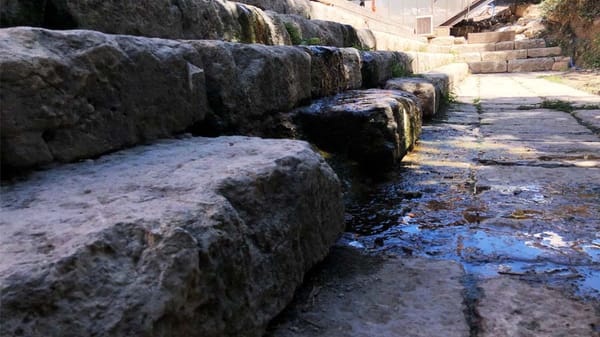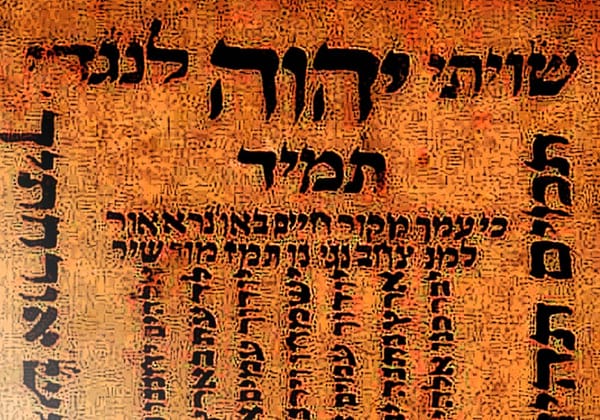One of the main features of the Jewish Passover celebration is Matzah (מַצָּה), the unleavened bread. In fact, there is no Passover without this basic ingredient. Its tale is central in the ritual of remembering the Exodus deliverance. So, each year, just prior to Passover, Jews clean out their homes of any hametz (חָמֵץ) "leavening," so that no fermentation of any sort is found in their homes for an entire week. And only unleavened bread is consumed for seven days of the festival (Ex 12:15, 20).
The eating of Matzah (מַצָּה) is emphasized on Passover, and avoidance of any fermentation in the kitchen is crucial in celebrating the festival. But why? What's so bad about fermentation? Why is leaven fine on any day, but during Passover, it is suddenly forbidden?
The reason only unleavened bread (מַצָּה, matzah) is eaten on Passover is quite simple. According to the Exodus account, Israelites had to leave Egypt in a rush, and their bread did not have time to rise. They baked what they had for the road, and their bread was flat and unleavened (Ex 12:39). Thus, Unleavened bread became the symbol of hasty departure from Egypt, reminding Israel of quick and sudden deliverance. Eating unleavened bread is a symbolic reenactment of that past.
Fermentation is a natural process, but it takes time for bacteria to do their job. Today people use yeast to speed up the process, but in antiquity, people baked bread daily and used a portion of dough saved from the previous day to ferment the new batch. It took most of the day for the new dough to ferment and to rise because the fermentation was a naturally slow process. Some bakers still follow this ancient method today, utilizing what is called the "sour", "mother", or "starter." In this method, existing fermentation is literally passed from one day to another, from one loaf to the next. The commandment of Passover, however, instructs us to interrupt this chain, to break the cycle.
Unleavened bread (מַצּוֹת, matzot) shall be eaten throughout the seven days; and nothing with fermentation (חָמֵץ, chametz) shall be seen among you, nor shall any dough with yeast (שְׂאֹר, seor) be seen among you in all your borders. (Ex 13:7)
So why is leaven forbidden on Passover? The answer to the riddle is found in understanding the symbolism of "leaven" - hametz (חָמֵץ). In itself, fermentation is not bad, it's actually good for digestion. But as a symbol, leaven represents stagnation, staleness, a continuous succession of old sour flavor from day to day. In light of a new beginning and fresh start of Exodus, stagnation is an obstacle. Israelites underwent a transformation from slavery to freedom, from Pharaoh to Almighty in the Exodus story. And this new begging requires a clean slate, thus the old cycle is broken.
The old leaven is destroyed, and unleavened bread is eaten for a week to ensure that the chain of old things is thoroughly disrupted and a new beginning is firmly established. This is why Apostle Paul wrote to his disciples in Corinth, "Clean out the old leaven so that you may be a new lump, just as you are in fact unleavened. For Messiah our Passover also has been sacrificed." (1 Cor 5:7). Removing the hametz (חָמֵץ) "leaven" is the symbol of the new start with God.










Member discussion